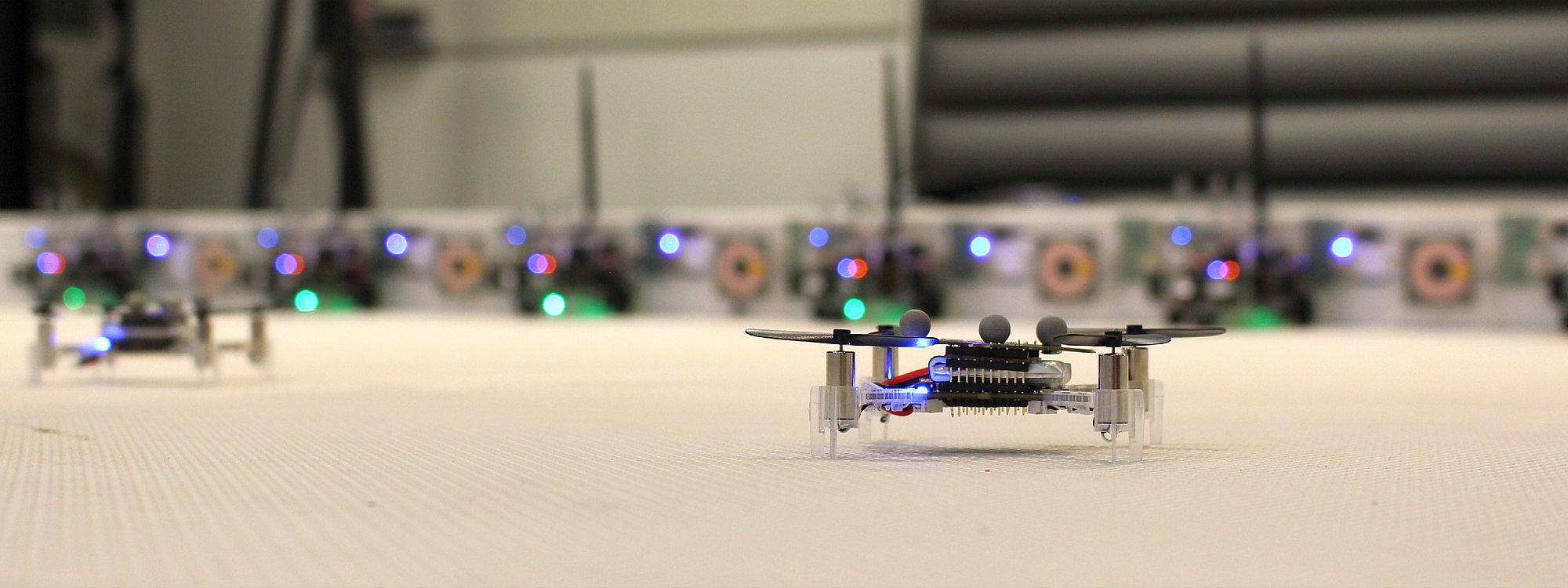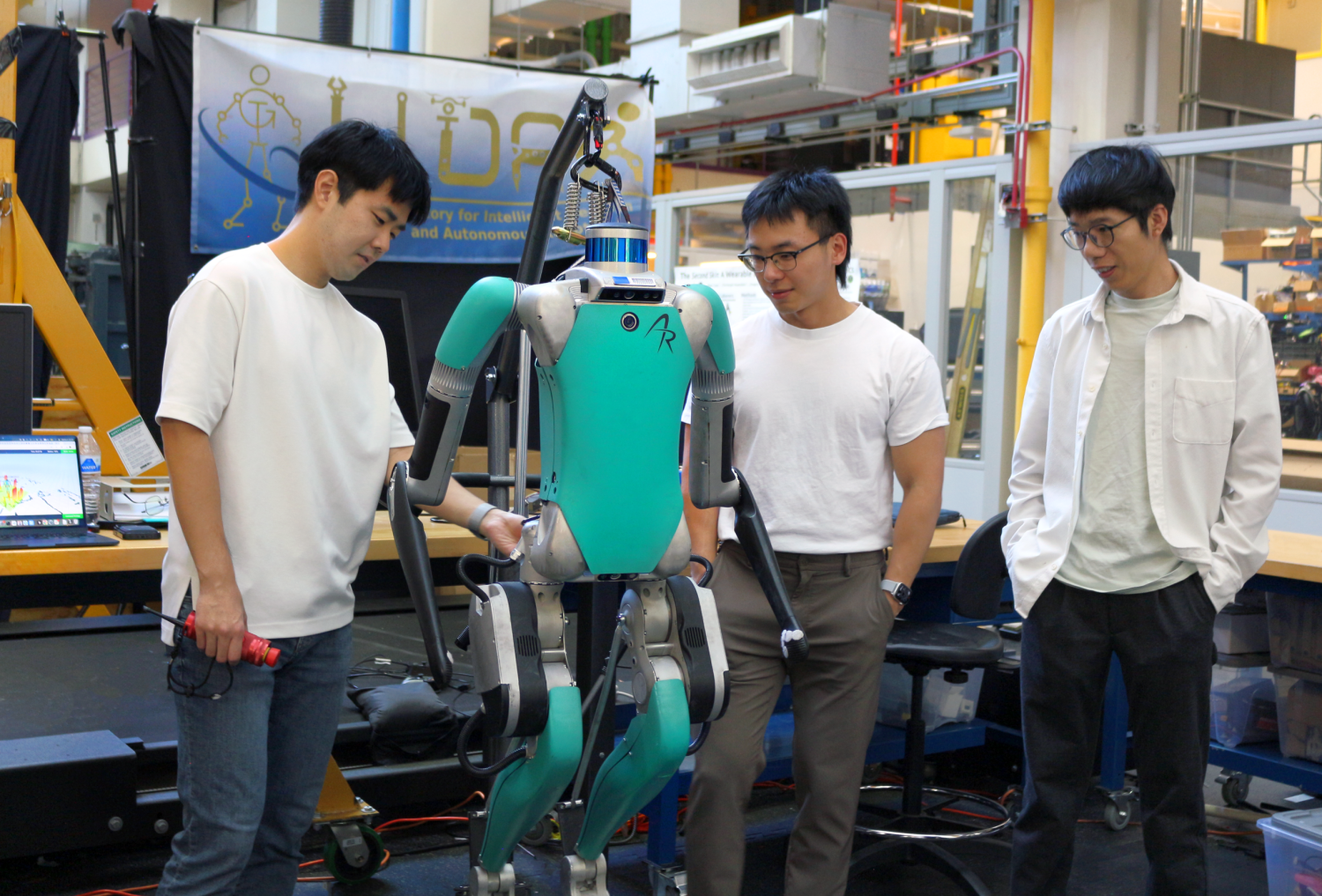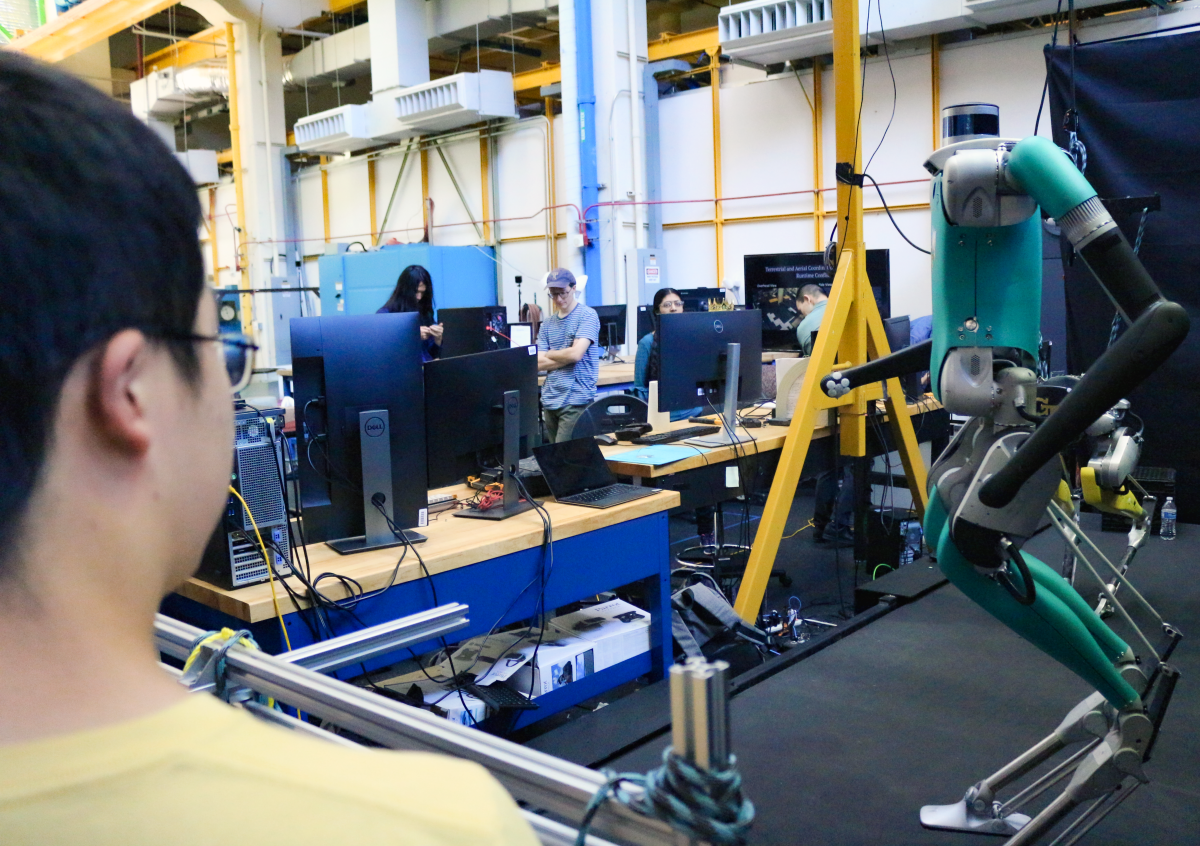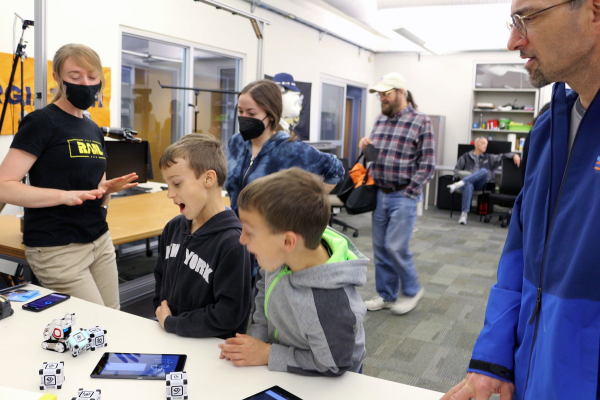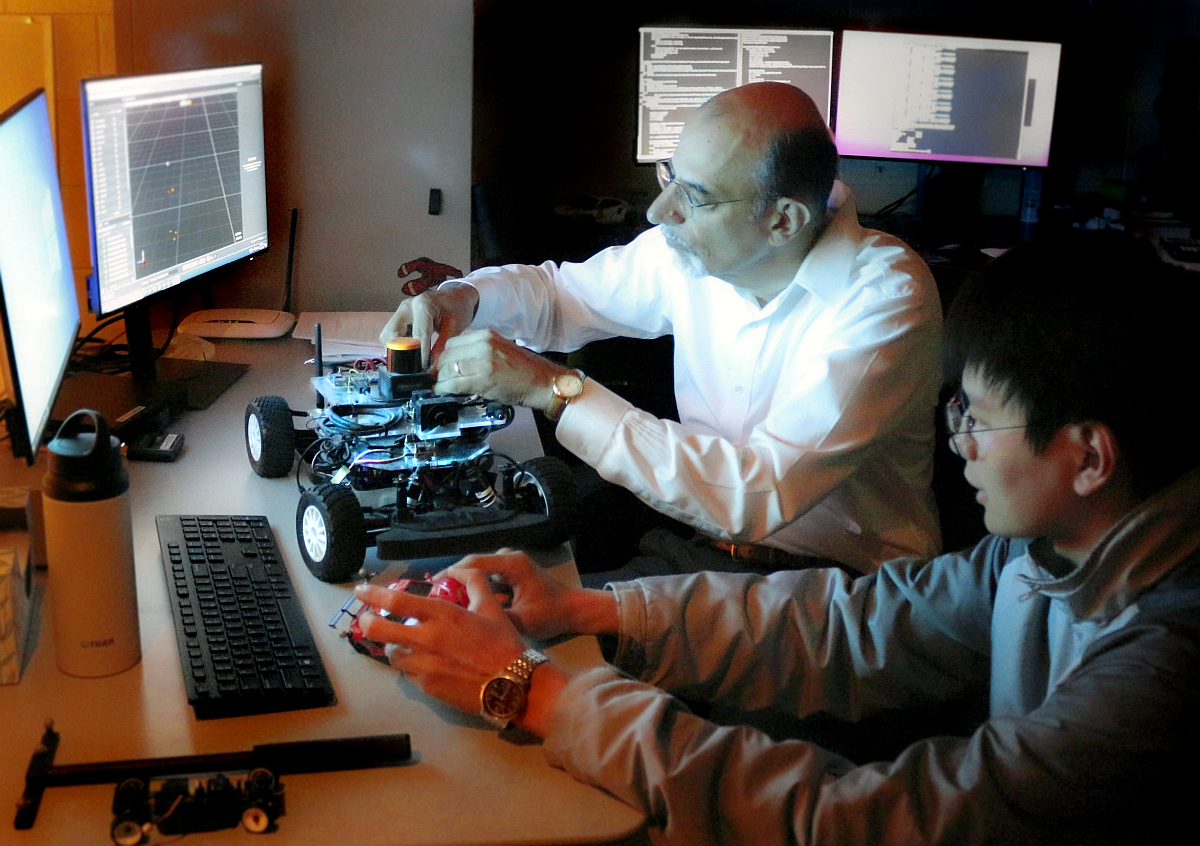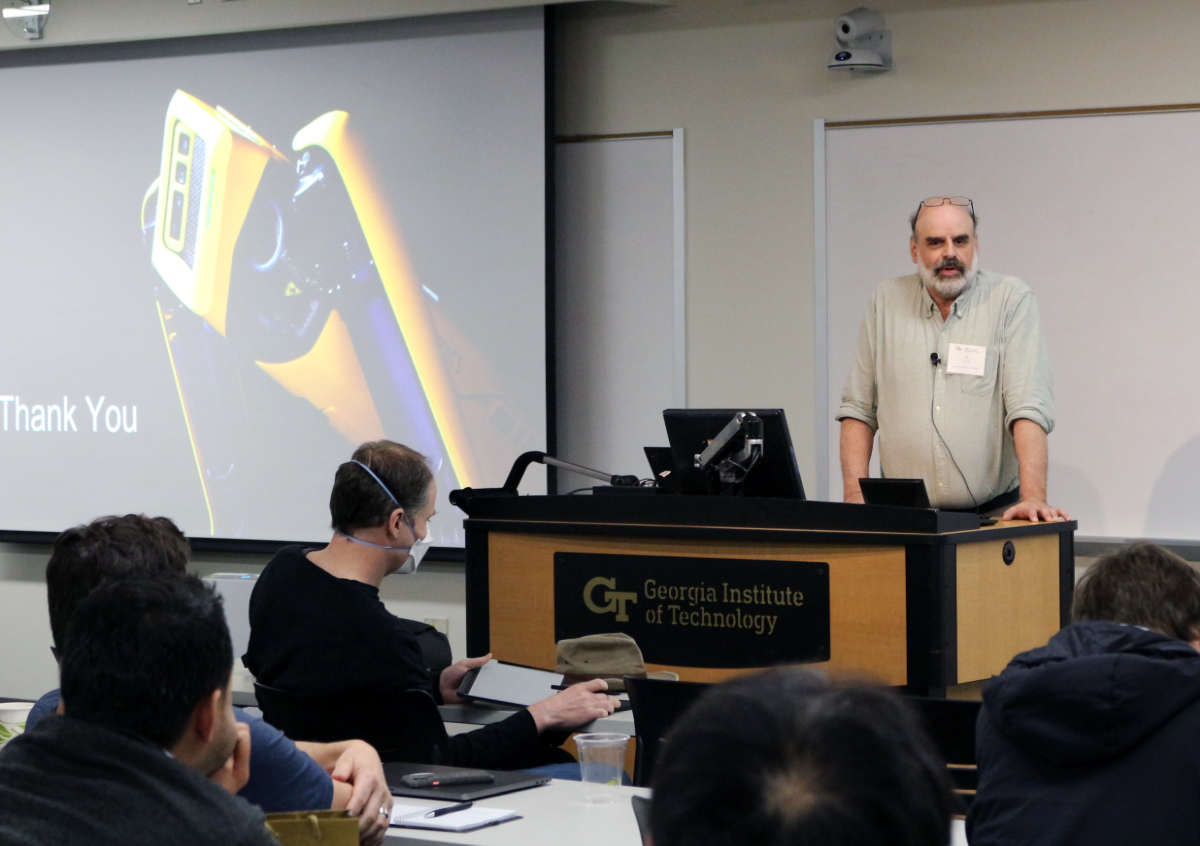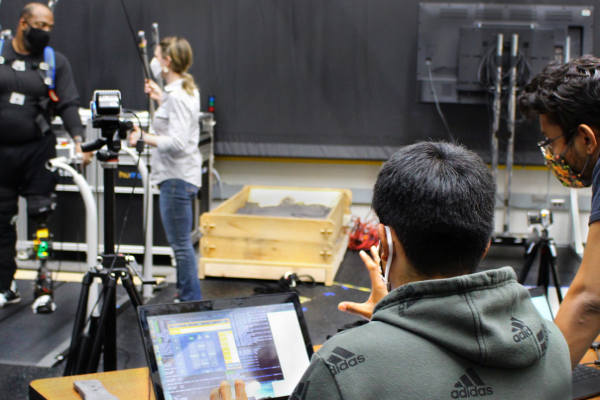IRIM Spotlight
Industry Event Alert

2026 Robotics Industry + Student Mixer
February 19, 2026 | 10:00am – 12:00pm EST
Klaus Advanced Computing Building Atrium
Dear Industry Colleagues,
We are pleased to invite you to participate in the 2026 IRIM Industry and Student Mixer focused on robotics talent at Georgia Tech.
This event is designed to maximize meaningful interactions in a short amount of time. Each participating company will have its own table, and students will rotate from table to table, allowing for brief, focused conversations with many recruiters. If you staff your table with two recruiters, you can expect to meet approximately 40–50 students during the session.
LIDAR Lab-mates Moving Humanoid Robots Closer to Adaptability in the Real World
Viral videos abound with humanoid robots performing amazing feats of acrobatics and dance, but finding videos of a humanoid robot performing a common household task or traversing a new multi-terrain environment easily, and without human control, are much rarer. This is because training humanoid robots to perform these seemingly simple functions involves the need for simulation training data that lack the complex dynamics and degrees of freedom of motion that are inherent in humanoid robots.
To achieve better training outcomes with faster deployment results, Fukang Liu and Feiyang Wu, graduate students under Professor Ye Zhao from the Woodruff School of Mechanical Engineering and faculty member of the Institute for Robotics and Intelligent Machines, have published a duo of papers in IEEE Robotics and Automation Letters. This is a collaborative work with three other IRIM affiliated faculties, Profs. Danfei Xu, Yue Chen, and Sehoon Ha, as well as Prof. Anqi Wu from School of Computational Science and Engineering.
(text and background only visible when logged in)
(text and background only visible when logged in)
IRIM Overview
Robotics Research
The depth and breadth of IRIM breaks through disciplinary boundaries and allows for transformative research that transitions from theory to robustly deployed systems featuring next-generation robots. Fundamental research includes expertise in mechanics, control, perception, artificial intelligence and cognition, interaction, and systems.
IRIM & Outreach
The Institute for Robotics & Intelligent Machines (IRIM) participates in numerous K-12 STEM and community outreach activities related to robotics. Additionally, IRIM hosts tours throughout the year, and our student group, RoboGrads, participates in activities to raise awareness of the importance of robotics technology and stimulate interest in the field
Robotics Education
Georgia Tech offers an interdisciplinary path to an M.S. and Ph.D. in Robotics to students enrolled in a participating school within either the Colleges of Computing or Engineering. A fully integrated, multidisciplinary experience, the M.S. & Ph.D. programs include both coursework and research with faculty members in various units across campus.
IRIM & Industry
Our Industry Program allows partners to explore opportunities for research collaboration, facilities and services, consulting, student hiring, and other interactions. Whether you join as a strategic partner, an affiliate, or as a member of one of our customized consortia, your team will be supported through our work as a interdisciplinary group of robotics leaders.
(text and background only visible when logged in)

